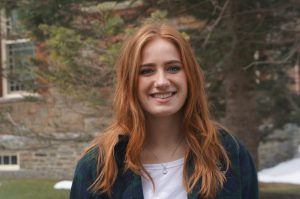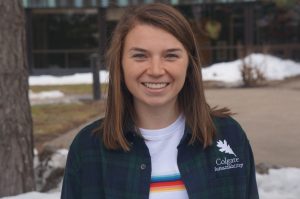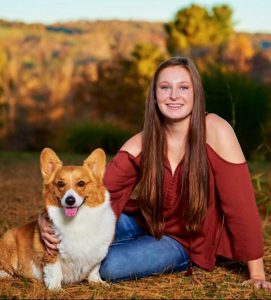What is AASHE?
The Association for the Advancement of Sustainability in Higher Education (AASHE) is an association of colleges and universities that are working to create a sustainable future. To further its mission of empowering higher education to lead the sustainability transformation, AASHE provides resources, professional development, and a network of support to enable institutions of higher education to model sustainability in all areas, from governance and operations to education and research.
AASHE defines sustainability in an inclusive way, encompassing human and ecological health, social justice, secure livelihoods, and a better world for all generations. AASHE is a member-driven, independent 501(c)(3).
Details:
Colgate University has recently renewed its membership in the Association for the Advancement of Sustainability in Higher Education to further campus efforts toward building a healthy and just world.
Colgate University first joined AASHE in 2009 and, through membership, has received continued support in advancing its sustainability initiatives throughout the institution and in the community.
“Over the years, AASHE has been a great partner to Colgate,” Colgate Director of Sustainability, John Pumilio, stated. “Their publications, network, and weekly newsletter provides up-to-date and relevant information. The fact that all Colgate community members have access to their resources adds tremendous value to our work here on campus.”
AASHE enables higher education institutions to meet their sustainability goals by providing specialized resources, professional development, and a network of peer support. Membership covers every individual at an institution, so the entire campus community can take advantage of member benefits.
AASHE hosts the Sustainability Tracking, Assessment & Rating System (STARS), a comprehensive campus sustainability rating system that enables institutions to measure their progress and learn from others. In Colgate’s most recent assessment, the university received a STARS Gold rating. With STARS as a roadmap, institutions can select meaningful and appropriate pathways to sustainability while conserving valuable resources, combating global warming, and building healthier communities.
Additionally, Colgate’s AASHE membership and STARS report have provided numerous avenues for engaged scholarship. Just this academic year, ENST 241 and CORE 128S A have incorporated projects related to the report into the curriculum as a way for students to get exposure to sustainability and climate action planning in the classroom.
AASHE is also one of two supporting organizations for the American College & University Presidents’ Climate Commitment. Colgate signed this commitment in 2009, pledging to be carbon neutral by our bicentennial in 2019. Over 860 presidents and chancellors so far have committed to lead their institutions to climate neutrality as soon as possible.
“AASHE counts on the support of progressive institutions like Colgate University to fulfill its mission of facilitating leadership to transform our planet,” said AASHE Executive Director Meghan Fay Zahniser. “As the gateways to knowledge, higher education institutions have a unique opportunity to make sustainability part of everyone’s agenda.”
Resources available to you through AASHE:
AASHE e-Newsletters
The AASHE Bulletin is a weekly publication that delivers the latest in campus sustainability news, resources, opportunities, events, and jobs and internships. AASHE Announcements is a monthly publication that highlights news, events and important information about AASHE and its members. STARS Update is a periodic publication designed to keep participants up-to-date on the latest STARS technical developments, publications, deadlines, tips and tools.
Online Resources
AASHE’s Campus Sustainability Hub is an online resource library that provides access to 6,000+ valuable resources for campus sustainability practitioners, enabling AASHE members to share and learn about all aspects of sustainability in higher education. Resources are organized by sustainability topic (e.g., curriculum, public engagement, energy, investment) and content type (e.g., academic program, case study, conference presentation, photograph).
Professional Development
AASHE presents or co-sponsors workshops and webinars throughout the year, as well as an annual conference that serves as the largest stage in North America for higher education sustainability practitioners to take advantage of face-to-face networking in a collaborative environment. These events offer opportunities to connect with our colleagues at regional, national and international levels to share resources. As members, we receive discounts on registration for all AASHE events. Check this listing for upcoming events.
Product and Service Discounts
AASHE business and nonprofit members offer exclusive product and service discounts for institutional members.
STARS Registration Discount
As a member, our institution receives a reduced fee for participating in AASHE’s Sustainability Tracking, Assessment & Rating System (STARS), a transparent, self-reporting framework for colleges and universities to measure their sustainability performance.
Publicity and Recognition
We can submit news, opportunities, resources, events, and job postings to the AASHE Bulletin (be sure to read the submission guidelines first). The Bulletin informs more than 9,000 subscribers in the campus sustainability community.
Professional Awards
Our campus can submit applications for any of the AASHE Sustainability Awards, in the categories of Campus Sustainability Achievement, Campus Sustainability Research and Student Sustainability Leadership.
Campus Sustainability Perspectives Blog
AASHE’s Campus Sustainability Perspectives blog features opinions and reports by staff and guests related to campus sustainability. You can read the blog, comment on posts and request to submit your own items as a guest blogger. There is also a chronological archive page and a comprehensive list of other blogs related to campus sustainability.
AASHE Member Logo
We can post the AASHE Member Logo on our website to emphasize our commitment to sustainability. The logo may also be used on any signage, reports, brochures, and publicity or display materials. Be sure to read the usage guidelines before publishing.
Governance, Councils, Committees
Anyone from our campus is welcome to submit for consideration to serve on AASHE’s Board of Directors, Advisory Council, STARS Steering Committee, or STARS Technical Advisors.
Individual Member Accounts
To access member-only pages on AASHE’s website and take advantage of member benefits, individuals must first create their own account. To create an individual account, go to the register page and complete a user profile using your campus email address. After you receive an email with your password, go to the login page, enter your email address (username) and new password, and you will have access to the entirety of online resources.
If you have any questions about AASHE or our benefits as a member, email membership@aashe.org. Again, every individual at Colgate can take advantage of these membership benefits from AASHE, so be sure to set up an account and get started today!





 While recycling may seem simple and easy to grasp, the recycling infrastructure varies greatly county-to-county and state-to-state. With Colgate drawing in students from 45+ states and over 100 countries, many students arrive with vastly different experiences and knowledge. Thus, it’s incredibly important to learn about what we have here at Colgate upon arrival.
While recycling may seem simple and easy to grasp, the recycling infrastructure varies greatly county-to-county and state-to-state. With Colgate drawing in students from 45+ states and over 100 countries, many students arrive with vastly different experiences and knowledge. Thus, it’s incredibly important to learn about what we have here at Colgate upon arrival.

 As required by the university, each organization has a “Sustainability Chair” who is responsible for promoting sustainability within their house, implementing sustainable practices, and organizing events within the Greek community. Additionally, throughout the semester, the Sustainability Chairs meet with the Program Coordinator and the Director of Sustainability to discuss action and possible events.
As required by the university, each organization has a “Sustainability Chair” who is responsible for promoting sustainability within their house, implementing sustainable practices, and organizing events within the Greek community. Additionally, throughout the semester, the Sustainability Chairs meet with the Program Coordinator and the Director of Sustainability to discuss action and possible events.






















